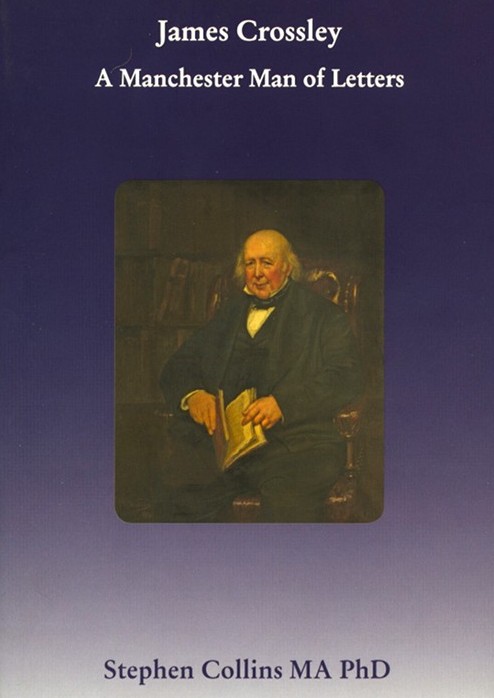For a while, in the nineteenth century, it seemed that all literary and antiquarian roads led to James Crossley, and in 1860, he received a letter from Joseph Parkes (1796-1865). Parkes was a Birmingham solicitor, municipal reformer and antiquarian, whose magnum opus was to be the Memoirs of Sir Philip Francis, with Correspondence and Journals, and he wrote to Crossley with some minor queries concerning Francis and various associated literary topics. The letter contained a flattering reference which may have been calculated to elicit a response, but was also a fairly accurate description: 'Your mind is a bonded warehouse of Literary Knowledge and your house is a Mausoleum of Curious and valuable & many more books.'
Unfortunately, Parkes died before he could finish this work, and the two volumes were completed by Herman Merivale, and published in 1867. Parkes's preface, written in 1865, contains no reference to Crossley, but tantalisingly, Merivale adds: 'Mr Parkes's Preface contained acknowledgements of the communication of some of other papers which he deemed of value; but as these have not been used by the present editor, the passages in question have been omitted.' Could he have been referring to communications from Crossley? How intriguing!
 Let's travel a little further afield. Who was Sir Philip Francis (1740-1818, pictured left)? Well, he was a British civil servant, born in Dublin and educated in London. After serving in many minor government posts he became, in 1773, a member of the Council of Bengal; in 1780 he fought a duel with Warren Hastings (with whom he was always quarrelling), and was seriously wounded. In 1781 he returned home with a fortune gained at whist. He entered parliament in 1784, and was energetic in the proceedings against Hastings.
Let's travel a little further afield. Who was Sir Philip Francis (1740-1818, pictured left)? Well, he was a British civil servant, born in Dublin and educated in London. After serving in many minor government posts he became, in 1773, a member of the Council of Bengal; in 1780 he fought a duel with Warren Hastings (with whom he was always quarrelling), and was seriously wounded. In 1781 he returned home with a fortune gained at whist. He entered parliament in 1784, and was energetic in the proceedings against Hastings.Now we need a reminder about Warren Hastings (pictured below, 1732-1818, the same year as Francis's demise) . He went out to Calcutta in 1750 as a writer in the service of the East India Company, and in 1772, after a brief return to England, became governor of Bengal and president of the council. The majority of the council, led by Philip Francis, were opposed to Hastings from the first. The finances were in disorder and one of Hastings's first tasks was to bring to trial the two fiscal ministers of Bengal on charges of embezzlement. The case broke down, and charges of corruption were brought against Hastings. He was certainly a tough and ruthless administrator of the region and made many enemies, especially Francis. On his return to England in1788, his conduct was the subject of a parliamentary enquiry and he was impeached at the bar of the House of Lords in a case which dragged on until 1795, when he was acquitted, though ruined by the expenses of the proceedings. However, the East India Company made a generous provision for his declining years and he ended his life as a country gentleman in Worcestershire.
So we have travelled quite a distance from Crossley's house in Booth Street, Manchester in 1860, when the letter from Parkes arrived, but it's fascinating how one enquiry can lead to another, and another. The ODNB gives fuller information and bibliographies on the lives of Francis and Hastings, and your library will probably have access this excellent source. Of course there's always Wikipedia, though their article on Francis suffers from 'multiple issues'. Incidentally, the brief Wikipedia article on Crossley was not written by me, though the one in the ODNB was.

